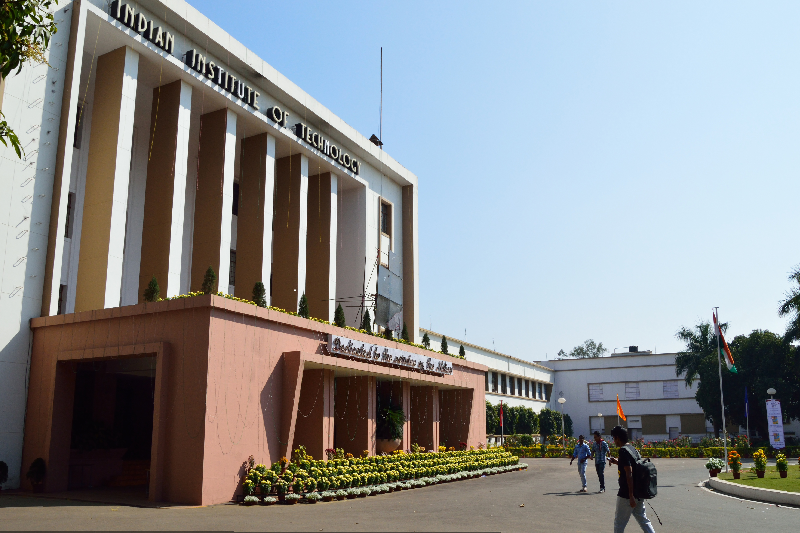
IIT Kharagpur Launches Bold Suicide Prevention Strategy: Removes Ceiling Fans, Introduces ‘Campus Mothers’ and 24x7 Mental Health Support
In the wake of a troubling rise in student suicides, IIT Kharagpur, one of India's most prestigious engineering institutions, is taking urgent and bold action to safeguard the mental well-being of its students. Among the most striking steps is the removal of ceiling fans from all hostel rooms, an effort aimed at reducing access to means of impulsive self-harm.
The move, while unconventional, underscores a growing awareness among academic institutions that mental health crises require structural, emotional, and systemic responses—not just words.
A Campus Grieving and Responding
The immediate catalyst for the sweeping reforms was the death of 21-year-old Ritam Mondal, a fourth-year mechanical engineering student, who was found dead in his hostel room on July 18, 2024, shortly after returning from vacation. His death marked the fourth suicide on campus in 2024 alone, prompting alarm among faculty, staff, and students alike.
To address the crisis, IIT Kharagpur has established a 10-member fact-finding committee and rolled out a comprehensive mental health strategy, combining both practical and emotional interventions to support its nearly 16,000 students.
Fan Removal as a Preventive Measure
The institute’s decision to remove or downsize ceiling fans in hostel rooms is at the center of the new strategy. While such an action might seem purely symbolic, it is grounded in research and real-world precedent that indicates reducing access to lethal means can prevent suicides, particularly those driven by impulsive behavior.
“This is not a solution to mental health, but in a moment of crisis, the absence of a tool can mean the presence of life,” said IIT Kharagpur Director Suman Chakraborty in a statement to PTI.
The initiative will be implemented in phases across all 21 hostels, though no specific timeline has been given yet.
Emotional Anchors: The Role of ‘Campus Mothers’
Beyond physical interventions, the institute is also addressing the emotional void that many students face. One of the most human-centered innovations is the introduction of ‘Campus Mothers’—a network of female faculty members and staff who will serve as emotional mentors and trusted confidants for students struggling with stress, anxiety, loneliness, or burnout.
This initiative aims to foster nurturing, non-judgmental spaces on campus, allowing students to reach out in informal and empathetic settings. The program reflects a deeper understanding that emotional support often needs to be proactive, personal, and embedded in daily campus life.
Strengthening Mental Health Infrastructure
Complementing these softer interventions is a robust expansion of formal mental health support, which includes:
- 24x7 mental health services, with psychiatrists now stationed on campus permanently.
- Barcoded helpline stickers on the doors of every hostel room, giving students immediate access to counseling and crisis lines with a quick scan.
- Monthly check-ins with parents to identify early warning signs and bridge communication gaps between students and families.
These steps reflect a shift from reactive measures to preventive mental health care, recognizing that many students suffer silently under the pressure of academics, expectations, and isolation.
Changing Campus Culture: From Stigma to Support
IIT Kharagpur’s new policies represent a cultural shift as much as an administrative one. For years, institutions across India have struggled with mental health stigma, particularly in high-pressure environments like the IITs. Students are often reluctant to speak up, fearing judgment or repercussions.
By taking visible, tangible actions—such as removing ceiling fans or assigning emotional mentors—the institute sends a clear message: mental health is a priority, and help is available.
A Wider Wake-Up Call for Institutions
The measures taken by IIT Kharagpur are not just reactive—they’re also instructive. As one of the top institutions in the country, its actions may set a precedent for other universities grappling with similar issues. Across India, student suicides remain a deeply concerning problem, with intense competition, social isolation, and academic stress being common triggers.
The National Crime Records Bureau (NCRB) data consistently shows a worrying trend in student suicides, particularly among youth in higher education. The time for institutions to act, many experts argue, is long overdue.
IIT Kharagpur’s strategy acknowledges that no single policy can "fix" mental health challenges—but combined, small architectural changes, emotional accessibility, and institutional support can save lives.
Looking Ahead: Building a Safer, More Compassionate Campus
By rolling out a multi-pronged initiative—from replacing ceiling fans to fostering human connections through ‘Campus Mothers’—IIT Kharagpur is challenging traditional notions of campus administration. The institute is reframing mental health as a shared responsibility, not just an individual burden.
Whether these efforts will significantly reduce the rate of student suicides remains to be seen. But the direction is clear: the institute is moving from silence to support, from reactive policies to preventive care, and from infrastructure alone to human-centered interventions.


